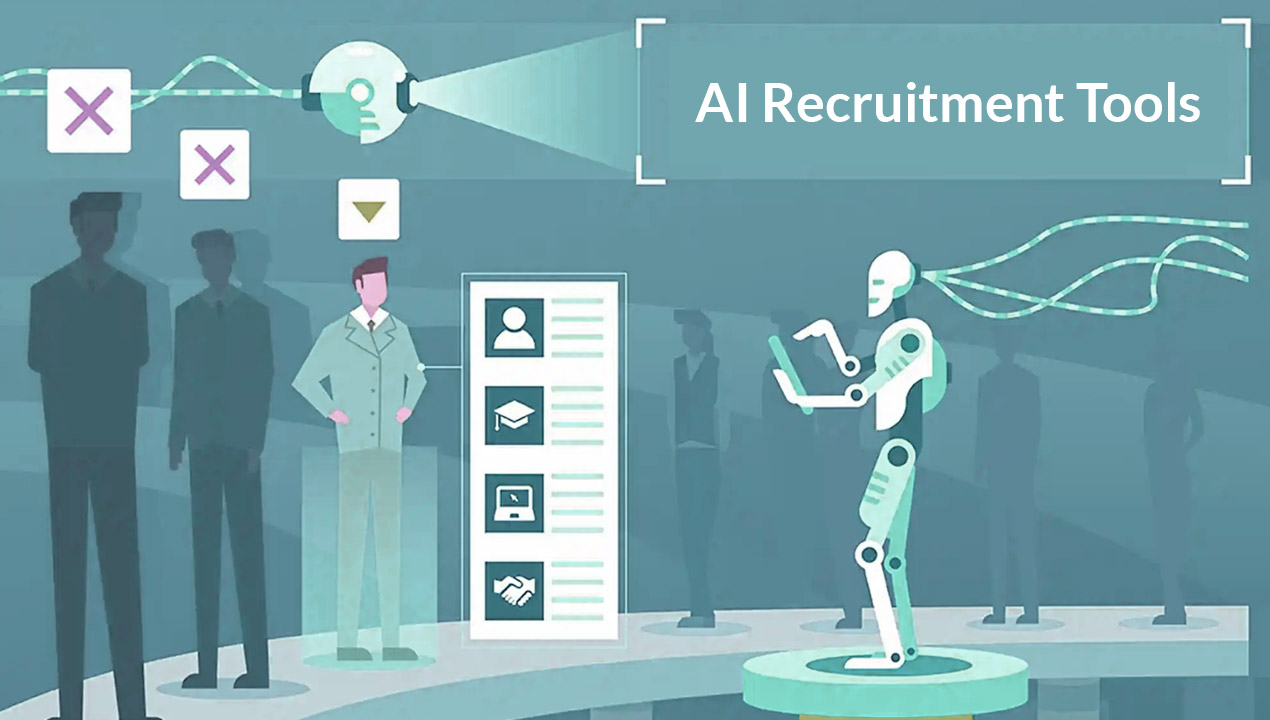Introduction:
In today’s fiercely competitive job market, securing the right talent swiftly is imperative for business success. Artificial Intelligence (AI) has revolutionized recruitment processes, offering innovative solutions to streamline hiring. This beginner’s guide navigates through the realm of AI recruitment tools, unraveling their advantages, classifications, hurdles, and practical tips for integration.
1. Grasping AI in Recruitment:
AI recruitment tools employ machine learning algorithms and data analytics to automate various hiring stages. Unlike conventional methods, these tools swiftly and accurately sift through extensive data, significantly reducing the time and effort needed for recruitment tasks.
2. Varieties of AI Recruitment Tools:
AI recruitment tools come in diverse types, each serving a distinct purpose in the hiring process. These encompass Applicant Tracking Systems (ATS) for managing candidate applications, resume parsing software for extracting relevant information from resumes, AI-driven job boards for targeted candidate searches, candidate sourcing tools for talent identification, and interview scheduling assistants for streamlining the interview process.
3. Benefits of AI Recruitment Tools:
Embracing AI recruitment tools yields numerous benefits for employers and recruiters. These include heightened efficiency and time savings, improved candidate matching via advanced algorithms, reduced bias in hiring decisions by focusing on skills and qualifications, enriched candidate experience through personalized interactions, and data-driven insights for informed decision-making.
4. Challenges and Considerations:
While AI recruitment tools offer substantial benefits, they also present challenges. Addressing privacy and data security concerns is crucial, ensuring fairness and evading algorithmic bias is vital, integrating with existing systems demands careful planning, and evaluating costs versus ROI is essential before implementation.
5. Pointers for Initiation:
For newcomers to AI recruitment tools, thorough research and careful selection of the right tools are imperative. Providing comprehensive training and onboarding for users maximizes the tools’ benefits. Continuous monitoring and assessment of their effectiveness, along with staying abreast of advancements and best practices in AI recruitment technology, are key.
Conclusion:
AI recruitment tools have reshaped the hiring landscape, offering unmatched efficiency, precision, and insights. As businesses embrace digital transformation, integrating AI into recruitment processes becomes not just an option but a necessity. Leveraging the power of AI recruitment tools like recruitRyte, businesses can stay ahead in the competitive talent market, ensuring a seamless and effective hiring journey.
Ready to revolutionize your hiring process with AI recruitment tools? Discover how recruitRyte can expedite your talent acquisition journey. Initiate your path towards smarter recruitment today!
